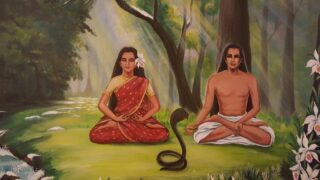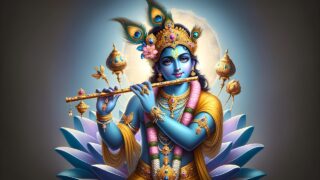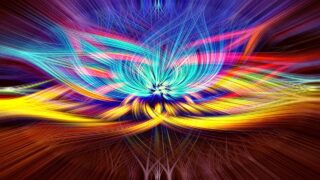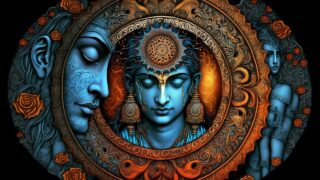情報過多時代の羅針盤:ヨーガとヴェーダが導く内なる真実と自己認識の旅
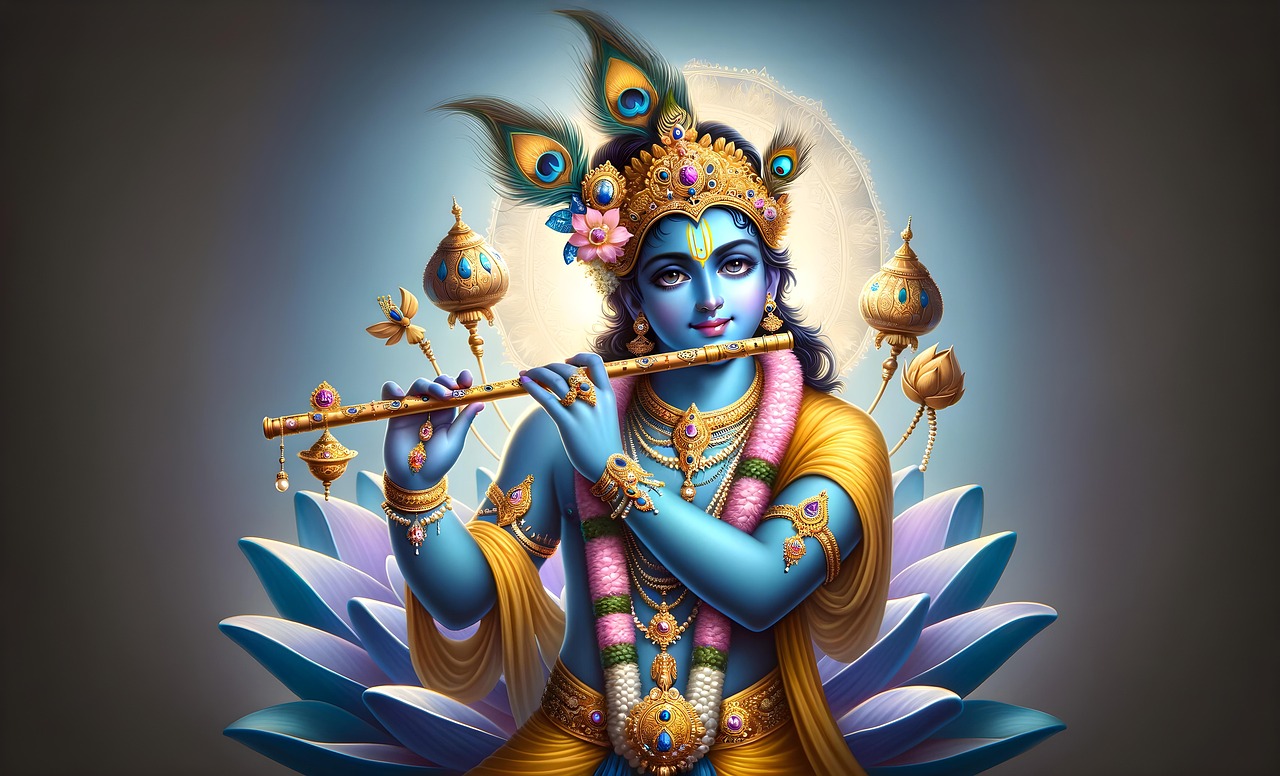
With the spread of the Internet and the rise of social media, modern society is entering an era of unprecedented information overload. Instant access to knowledge and information from around the world has led to breakthroughs in education, research, business, and many other fields. However, while we are benefiting from this information revolution, we cannot ignore the reality that we are drowning in a flood of information, and it is extremely difficult to discern its authenticity.
- 1 In the age of information overload, it is difficult to discern truth and falsehood
- 1.1 The Importance of Concealed Truth and Critical Thinking
- 1.2 The absence of saints and the need to lead the self
- 1.3 Yoga: The Science of Training the Mind
- 1.4 Ancient Vedic Exploration of the Universe and Human Nature
- 1.5 Babaji, the Immortal Saint, a being who aids the spiritual evolution of mankind
In the age of information overload, it is difficult to discern truth and falsehood
With so much information on a daily basis, such as news articles, blog posts, social media posts, and video content, it is often difficult to decide which information to believe and which to ignore. Especially in the fields of health, politics, and science, misinformation and hoaxes can easily spread and lead to misjudgment of individuals.
There are countless examples of misinformation that has a significant impact on society, such as vaccine misinformation seen during the pandemic and skepticism about climate change. The teachings of yoga and ancient Vedas, which were once considered secrets, are now readily available through books and online courses, but the quality of their content is cobblestone, and it is necessary to be careful.
There is a flood of information that conveys only superficial knowledge, is distorted for commercial purposes, and is based on misinterpretations, and finding truly reliable information requires careful scrutiny, including expert reviews, references to reliable sources, and comparisons with multiple sources.
The Importance of Concealed Truth and Critical Thinking
Furthermore, in modern society, the truth is often concealed by various interests. Governments, corporations, associations, and other entities pursuing specific interests may conceal or distort information that is not convenient for them. Media and sources of information may screen and manipulate information according to specific intentions and objectives, while pretending to be neutral.
Information can be manipulated by a variety of factors, including sponsorship pressure, political interference, and propaganda activities. Despite the principle of disclosure of information, the disclosure of information may be restricted due to national security, trade secrets, privacy protections, etc. Therefore, we need to develop the ability to discern the truth by constantly having a critical perspective and exposure to multifaceted sources. It is important not to take the information with a grain of salt, but to verify the credibility of the source, the corroboration, and the logical consistency of the information and make a judgment from an objective perspective.
Listening to opinions that differ from your own, and having a flexible mindset that is not bound by prejudices or stereotypes, is also the key to seeing the truth. It is necessary to make efforts to determine the authenticity of information by using various means, such as using fact-checking agencies, listening to experts, and analyzing publicly available information.
The absence of saints and the need to lead the self
In addition, in modern society, there are not always saints, saints, and sages who we should look up to as models for our way of life. In the past, we could receive direct instruction from people called mentors and guides and use them as guides for our lives, but in modern times, such opportunities are rare.
Traditional communities and religious groups are losing their influence, and individualistic values are prevalent. As nuclear families become more and more connected to the community, it's harder to find role models. Therefore, we need to listen to our inner voice and guide ourselves through the scriptures and yogic practices.
There are many tools available to support personal growth, such as self-help books, seminars, and mentoring programs, but at the end of the day, it's important to follow your own inner voice and choose to live your life based on your own values. Scriptures and yoga can be an effective way to listen to one's inner voice and deepen one's self-awareness. Finding inner stillness through meditation and observing your emotions and thoughts can help you gain a deeper understanding of yourself.
Yoga: The Science of Training the Mind
Yoga is more than just exercise. It's not just about making the body flexible, it's a science that trains the mind, a practical way to deepen self-awareness and find the truth. It includes not only physical poses (asanas) but also breathing exercises (pranayama), meditation (dhyana), and ethical norms (yama and niyama).
Yama and Niyama provide ethical guidelines in relationships with others and with the self, and promote harmony in social life. In addition to increasing physical flexibility and balance, asanas can also help you focus and release tension in your mind and body. Pranayama regulates the flow of energy and revitalizes the mind and body by controlling the breathing.
Dhyana is a practice that allows us to quiet the mind, improve our concentration, and turn to our inner selves through meditation. Yoga is the process of giving a clouded mind a training in self-knowledge, starting with acknowledging ignorance and understanding that we need to change ourselves. The purpose of yoga is to observe one's own thought patterns, emotional habits, and behavioral habits in order to live a more constructive and harmonious life. Learning yoga is a journey to find your inner light and find purpose and meaning in life. In addition to physical health, it can also promote mental stability, emotional maturity, and spiritual growth.
Ancient Vedic Exploration of the Universe and Human Nature
In this context, the teachings of the ancient Vedas and the philosophy of yoga become a valuable compass for us. The Vedic teachings are the sacred texts of India that are thousands of years old and offer a deep reflection on the truth of the universe and the nature of man. It focuses on the four Vedas, namely the Rig Veda, the Yajur Veda, the Sama Veda, and the Atharva Veda, as well as the Upanishads, Bhagavad Gitas, and various other texts.
It contains esoteric concepts such as the cycles of the universe such as creation, maintenance, and destruction, the reincarnation of the soul, and the law of karma, but it provides answers to fundamental questions about how we live. The Vedas look at the origins of the universe, the meaning of life, the afterlife, and other questions we wonder on a daily basis from a unique perspective.
The philosophy of yoga also shows us how the mind works, how we control our emotions, and how we can achieve self-realization. Patanjali's Yoga Sutras are a systematic compilation of the system of yoga practices and are the philosophical foundation of yoga. The philosophy of yoga includes a variety of techniques for observing the state of mind, controlling emotions, improving concentration, and deepening meditation.
Babaji, the Immortal Saint, a being who aids the spiritual evolution of mankind
Known as an immortal saint, Mahaavata Babaji is introduced in Paramahansa Yogananda's book Autobiography of a Yogi. Babaji is an immortal avatar who has held a physical body for centuries or even thousands of years, and is said to exist to help humanity in its spiritual evolution.
Its existence is shrouded in mystery, and although many eyewitnesses and legends have been told, its authenticity is uncertain. However, Babaji's presence suggests to us hope and the possibility of spiritual growth. Legend has it that Babaji lived in the depths of the Himalayas and passed on his teachings to his chosen disciples. He is also known for his contribution to the spread of Kriya Yoga.
Avatar: The incarnation of God in the flesh
Avatar means "to descend downward" in Sanskrit, and in Hindu scriptures it is interpreted as "something that God has inhabited in the flesh and reborn." It is the idea that God appears on earth in human form to save mankind.
The 10 avatars (dashavataras) of Lord Vishnu are famous, and Rama, Krishna, etc. are also considered avatars. Babaji's spiritual state is far beyond human comprehension, and we can never even imagine it.
